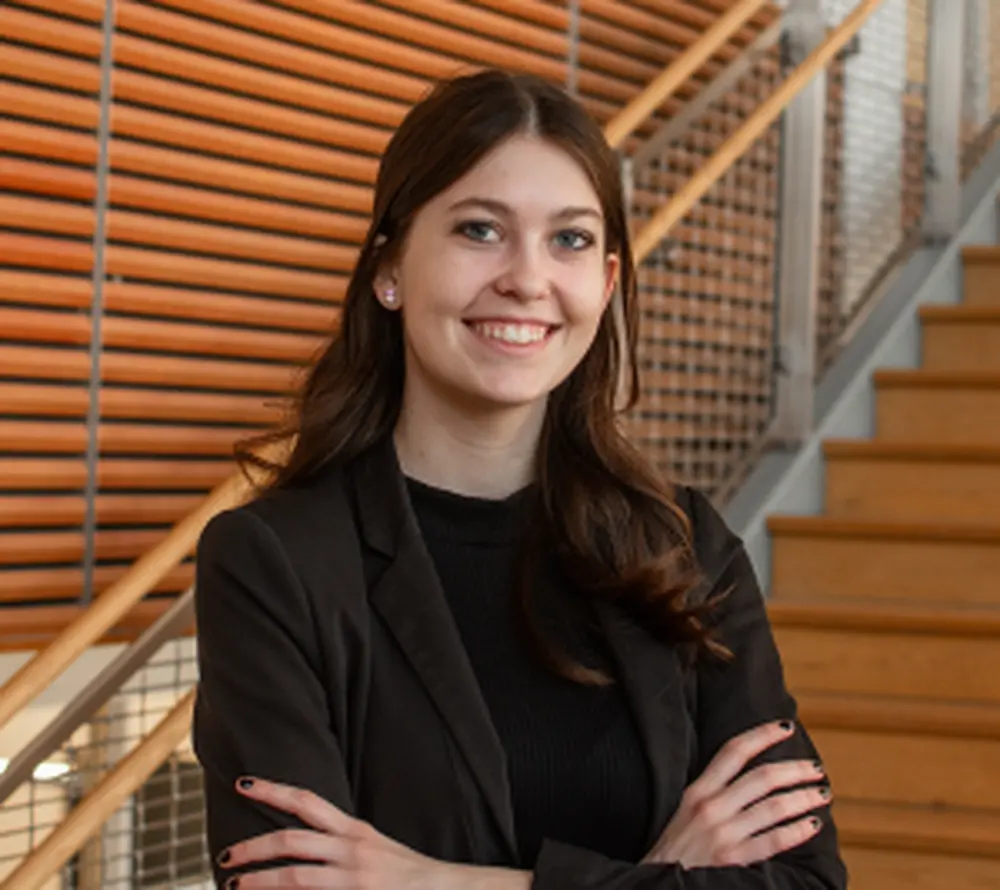
Editor's note: This story originally appeared on the Humanities Research Institute website.
Humanities in Action (HIA) is a semester-long, paid community engagement program for humanities students at the University of Illinois. This collaboration between We CU Community Engaged Scholars and the Humanities Research Institute supports scholars seeking to work with community partners across Champaign-Urbana on projects that have immediate, real-world impact. HIA allows scholars the independence to explore personal passions, apply their humanities education, and make a difference in the community.
The Humanities Research Institute spotlighted Humanities in Action Scholar Lillian Webb. Lillian is a junior majoring in history and anthropology with a minor in integrative biology. Lillian is partnered with the Education Justice Project, which is currently a unit of the Department of Education Policy, Organization, and Leadership (EPOL). The unit works as a model college-in-prison program providing University of Illinois classes and extracurricular activities to incarcerated individuals at Danville Correctional Facility. They develop reentry guides and resources for incarcerated individuals and their families. Additionally, the EJP hosts events on campus to meet the ongoing needs of this community discovered through the unit's work.
What work are you doing with your community partner?
I'm working with EJP’s reentry manual team. That tends to be a lot of different tasks, depending on what my supervisor asks. I’ve written paragraphs and done research for the manual. I've also done research on useful topics for my supervisor to bring up in different meetings. It can vary from day to day, but overall, I’m mainly focused on making a manual for recently released people or those who are going to be released from prison, so that they have an accessible, easy-to-understand guide that explains complicated processes to them, so they don't need to go searching.
What inspired you to apply to become a Humanities in Action scholar?
I heard about it from a couple of different places, and as I looked into it, I thought it was perfect. I've always really liked volunteering. I've done it the majority of my life, whether it's helping out with service projects or being in clubs. In high school, I was in Key Club. In college, I found it a lot more difficult, because of all the factors to consider, like time and figuring out how to get involved in these organizations. And of course, money is a major factor to consider, because you're taking up a portion of time that could be used at a job making money. When I heard about this, it really checked all the boxes. I thought, I may as well apply and see what happens. I'm so glad that I did. It's been such a great experience.
How have you applied your humanities education to your service work as a Humanities in Action scholar?
My writing and researching skills have definitely helped me both through the (reentry) manual and that practice has helped me in my classes. I’m also practicing skills that I think the humanities teach, like how to communicate with people, how to look outside yourself, and understanding that a problem existing in the community doesn't just exist out of nowhere. I’ve been able to look at the wider scope of problems to try and help fix them, rather than just the individuals.
How have you developed professionally through this experience? What specific skills have you gained?
I've learned how to write in a new way. I've already had writing skills in the past that have grown, but this style was different because it needs to be accessible to as many people as possible. It was really cool learning to write in a less academic way to appeal to a broader range of people, and learning to be very specific with the language I choose to use. Also, communication skills. Learning how to communicate with my supervisor and get feedback is super helpful, because that's relevant in any aspect of life.
How would you describe being a Humanities in Action scholar in three words?
Rewarding, inspiring, and helpful.
Do you have any advice for future Humanities in Action scholars?
Whatever program you're paired up with, fully embrace it and try to get as much out of the experience as you can. Because the people that you work with, both within the HRI and your individual community partners, they all want to help you succeed and grow. Actively look out for whatever you can take from the experience and whatever they can teach you. Pursue it, and accept it as advice to implement in your life.